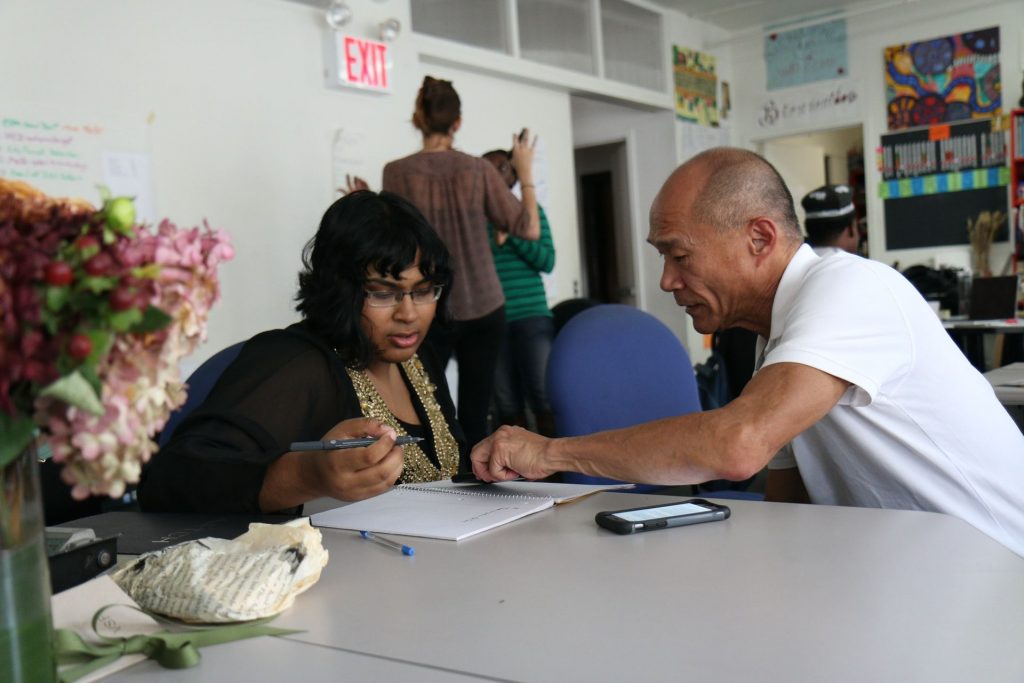Philosophy for Teachers
Ethical thinking about classroom dilemmas
Philosophy for Teachers, or P4T, is adapted from the more familiar idea of P4C or Philosophy for Children: Orchard et al 2019; Orchard and Davids 2019, (PDF 435kB).
It draws on the model of learning through dialogue within a community of practice which in the case of P4T comprises new teachers, teacher educators and philosophers. It does not offer complete solutions to what are nuanced and complex practical and theoretical issues.
However, it does support teachers to think ethically about dilemmas they face in their early experiences in classrooms.
Three pilot events took place in England in 2015-16 which suggested that a number of benefits could accrue from the opportunity for extended ‘critical reflection’ of a particular sort away from the ‘busy-ness’ of conventional teacher education in a residential setting
The model was trialled again in Cape Province, South Africa (Orchard and Davids, 2019) bringing student teachers and tutors together for the first time from three universities and across religious, cultural and ethnic divisions.
However, Waks (2020) has noted that P4T need not be residential; and Karen Murris (2016) has demonstrated practically how a P4C approach can be incorporated successfully, potentially at far lower cost, within a conventional PGCE programme, arguably to similar effect.
Attempts to pilot a non-residential P4T event in 2020 culminated in the Going Global initiative. The Covid-19 pandemic didn’t help; however, working with local teacher educators we concluded that the shorter on-line dialogue format could be a fruitful, realistic and culturally appropriate approach to take to promoting ethical deliberation in this context.
P4T is not without its limitations as those who have been developing it (and P4C) readily acknowledge. Take the potential absence of expert or ‘powerful’ knowledge in a community of enquiry established on democratic principles.
For example, during one P4T pilot session, a religious matter arose and the ensuing discussion wandered down an intellectual cul de sac which, arguably, a more didactic teaching approach might have avoided.
P4T can be helpful for putting philosophy to work in the curriculum of teacher education as an interdisciplinary subject that encourages teachers to hone their skills in using the tools of philosophy, including dialogue, to collectively seek solutions to recurrent workplace dilemmas.
By the same token, some structured subject specific input from a community member was possible; and the process of wandering had value. On a different note, Darren Chetty has raised important questions about the implicit biases from a critical race perspective regarding established P4C/T practices.
Nonetheless, observation so far has been that the (intense) quality of ethical living which the residential version experience of P4T promotes is uniquely powerful. Those who have attended P4T activities have found the experience powerful, in some cases transformative.
Resources
England
- Philosophy for Teachers( P4T) – developing new teachers’ applied ethical decision-making (PDF, 515kB)
- Developing new teachers’ applied ethical decision-making (Powerpoint, 2MB)
Hong Kong
- East Meets West: Philosophy, Critical Reflection and the Development of Teacher Leadership in Teacher Education (Word, 36kB)
- East meets West: Philosophy, critical reflection and teacher leadership in teacher education (Powerpoint, 6MB)

